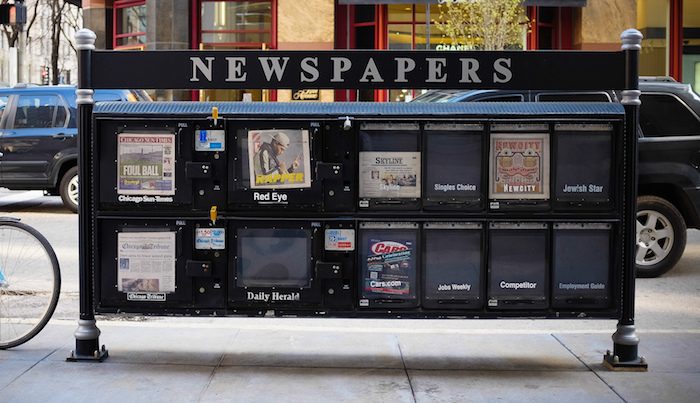
There is a tendency among International Relations (IR) students to see the academic study of international politics and the reporting of international affairs as separate spheres. IR News of the Week (NotW) is a simple idea which tries to overcome this issue and carries many potential benefits. Students are asked to present an item of news related to IR from the previous week to their classmates. I encountered this exercise in an International Political Economy class as part of a Master’s programme in International Studies and feel it is fitting for IR classes more generally. In my experience, presentations were usually conducted by 3 to 4 people and last no longer than 10 minutes. Students were given free-reign over how to present their news item. This was generally followed by an engaging discussion involving the whole class.
The aim of the task is not for students to simply re-hash a news article but to link a current issue to wider theories, debates and ideas in the field of IR. It helped me to grasp the idea that International Relations is something that’s going on constantly in the ‘real world’, rather than just something that exists in textbooks and journals. Connecting real world events with theories might seem like a well-established exercise… and it is. But, as students, we are often only really doing so a few times a semester when deadlines are looming. NotW is primarily a short exercise which helped my fellow classmates and I to be active learners during class rather than just idle consumers of information and ideas.
I found that the brief and informal nature of these presentations provides more opportunities for students to connect real-world events and theoretical material but in an unburdening manner. The exercise requires students to find a relevant article, or several, and interpret and analyse it themselves, not spend hours pouring over books in the library. This encouraged me to think more independently and critically about the material we encountered which also helped us when writing formal assignments.
The NotW presentations that I was involved with were not assessed and I think this works to the benefit of the exercise. My initial fear was that, with no grades at stake, my fellow class-mates would not put in the required effort to make the exercises worth doing. However, the undemanding nature of the task and the freedom students are given on the choice of topic means that NotW is an exercise that yields fantastic results without the need for formal assessment.
If presentations are conducted in groups, the actual process of selecting articles can be very beneficial for students. In my experience, this usually takes the form of group members going their separate ways and sifting through interesting articles before reconvening to discuss various interesting and disparate topics before settling on a topic/article to present in class. Within one group meeting we discussed issues ranging from Japanese military legislation to population problems in Eastern Europe and Russian interests in Syria. Few exercises are able to foster such varied discussions among students outside of the classroom.
One particular presentation that sticks in my mind was on the emergence of regional development banks. This ten-minute presentation based on a news item about the Asian Infrastructure Investment Bank (AIIB) brilliantly brought out the complex debate surrounding regionalism and whether it represents increasing international cooperation and interdependency or an attempt by certain states to achieve regional hegemony. Regionalism was an issue that we had been wrestling with throughout the course and it was this presentation which most clearly expounded the debate.
My experience also tells me that NotW presentations tend to be more efficacious in stimulating in-class debates and discussions than more conventional presentation formats. Group-based NotW presentations included the possibility for group members to take different stances – or put on different ‘lenses’ – in explaining the news item in an attempt to win the support of the audience (their fellow classmates) with the victor determined by a class vote following a discussion. The example given above is a perfect example as group members battled to ‘prove’ the emergence of such banks represented their theoretical position, realist or liberal in this instance. The wave of facebook feeds appearing on classmates’ computer screens ceased to exist and were replaced by the lecturer making interventions to tell students to ‘calm down’.
The relatively small amount of content the presentations covered facilitated this kind of stance-taking approach and help students to say a lot about a little. This approach also helped us to become more comfortable and confident in applying, and rejecting, IR theories as well as arriving at independently arriving at interpretations of an issue. Furthermore, all group members had a specific role and purpose – trying to win over the angry mob – so were fully engaged in the discussions following the presentation. Furthermore, the informal nature of the presentations, and the fact they are not designed for assessment purposes, allows students to focus on the delivery of the presentation and hone their personal presentations skills. I noticed a marked difference in the quality of delivery in NotW presentations compared to assessed student presentations. The general consensus among the class was that the freedom the exercise allowed meant students could focus on producing cogent, polished presentations.
To sum up, IR NotW is an unburdening exercise which is great for encouraging independent research, honing presentation skills, helping students to become more confident in applying theories and fostering engaging debates in the classroom.
Further Reading on E-International Relations
- Nurturing Cognitive and Affective Empathy: The Benefits of Perspective-Taking
- Defining Post-truth: Structures, Agents, and Styles
- Structuring a Mixed-Methods Course
- What to Do When You Don’t Like a Topic You Teach?
- Working with and Supporting Teaching Assistants
- Rethinking Chinese School of IR from the Perspective of Strategic Essentialism